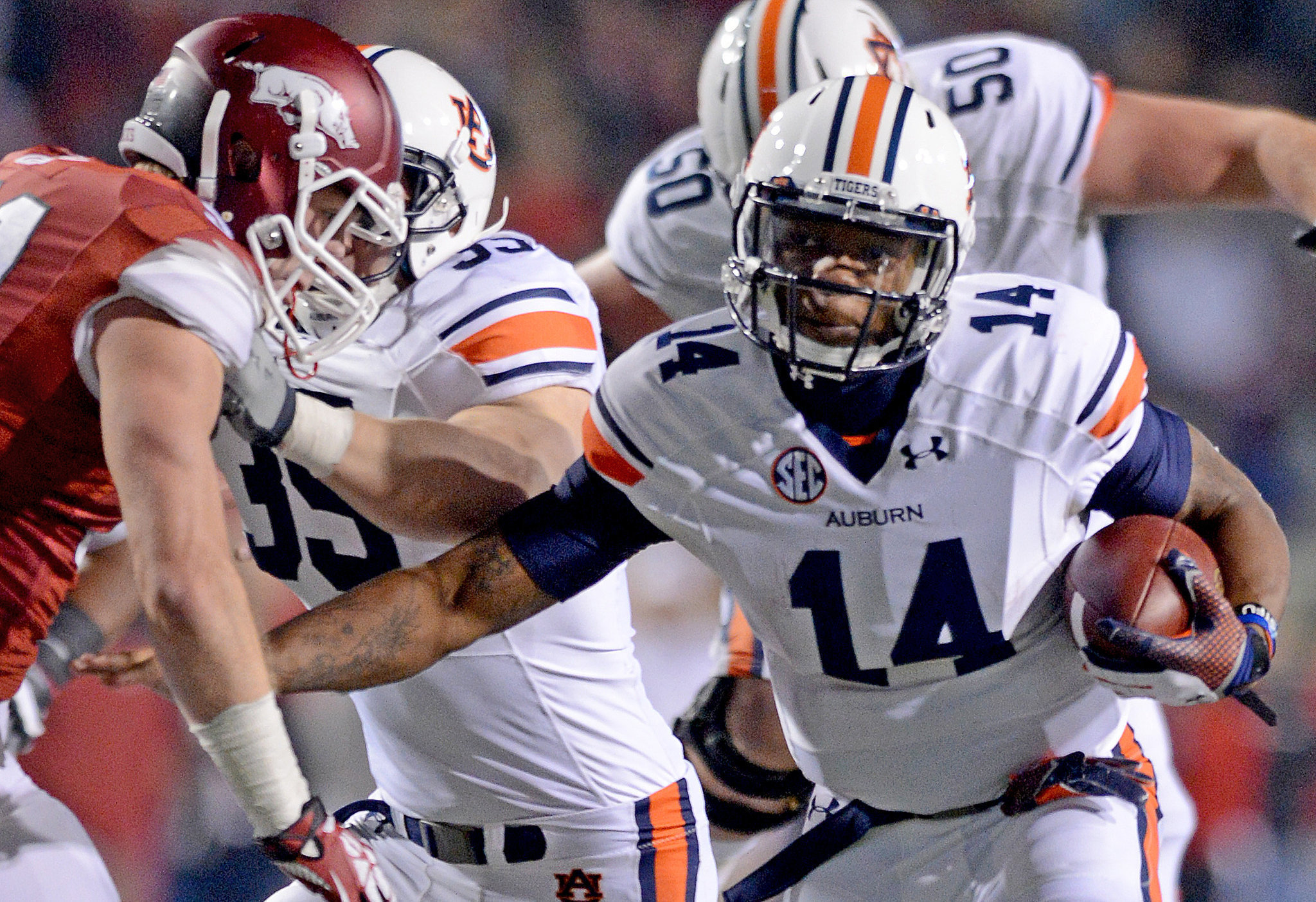ESPN Sorts Out College Football Scheduling 'Puzzle'
The smarter way to stay on top of the multichannel video marketplace. Sign up below.
You are now subscribed
Your newsletter sign-up was successful

After ringing up audience gains overall and reaching more than 189 million viewers through its varied game telecasts in 2013-14, the ESPN family of networks stands poised to score more viewership gains with its expansive college football coverage during the upcoming campaign.
All told, ESPN, ESPN2, ESPNU, ESPNews, ABC, broadband portal ESPN, the freshman SEC Network, Longhorn Network, ESPN Radio and highlights service Goal Line will present more than 450 college football games during the 2014 regular season. The worldwide leader in the first of a 12-year, $5.6 million rights deal will present the inaugural College Football Playoff, featuring a pair of semifinal contests with the winners meeting at AT&T Stadium in Arlington, Texas, to crown a new champion. The package also includes the four bowl games that are part of the rotation to host the semifinals. Like its BCS predecessor before, ESPN plans to air a playoff show on Sunday nights, starting in late October.
“This is the first time since the Super Bowl that a major sport has changed how it determines its champion,” said Kurt Dargis, ESPN director of programming and acquisitions. “We’re very excited about the possibilities of the new system.”
Although Dargis won’t play Nielsen prognosticator, the playoff could have the potential to drive the largest audience in cable history, surpassing the 27 million who watched Auburn top Oregon in the 2011 BCS national championship game.
For those keeping score, the 2014 BCS title game in which Florida State edged Auburn in the final moments drew 25.5 million viewers, the third-biggest audience in cable history. Last season, ESPN averaged 2.66 million viewers per game, up 3% from 2.56 million from the prior season. ESPN2 grew 8% to 1.11 million per game from 1.02 million, while ESPNU was ahead 4% to 400,000 from 385,000.
The gains came despite increased presentation from Fox, which brought then freshman Fox Sports 1 into game and CBS, which sports the top-rated SEC broadcast package, and flanks those with other games on sister service, CBS Sports Network. NBC, Big Ten Network, Pac-12 Networks and regional sports networks are also on the collegiate gridiron.
The 100-plus offerings from varied Fox outlets, CBS's primary SEC package and 66 contests from CBS Sports Network aside, when it comes to college football, it’s largely ESPN’s multiplatform world. The season began on Aug. 23 with Sam Houston State at Eastern Washington on ESPN, before the worldwide leader blitzes its extended Labor Day weekend action. ESPN’s seventh annual Dick’s Sporting Goods Kickoff Week will encompass 55 games from Wednesday, Aug. 27 to Monday, Sept. 1. The schedule – the most ever over the Labor Day Kickoff Week – culminates with the Labor Day primetime telecast at 8 p.m., marking the ACC debut for Louisville with the Cardinals hosting Miami (Fla.). Also included: ESPN2’s coverage of the 2014 Croke Park Classic, pitting Penn Station against Central Florida from Dublin, Ireland at 8:30 a.m. on Aug. 30.
The smarter way to stay on top of the multichannel video marketplace. Sign up below.
“If we could get more 8:30 a.m. games, we tried to fill those in,” joked Dargis, noting that with the three-hour, on-campus preview show College GameDay kicking off at 9 a.m., and coverage of the Pac-12 conference, the action on many Saturdays doesn’t stop until 2 a.m. (Sunday morning).
That says nothing about the varied networks’ commitment to action on the other nights of the week as well.
Dargis said he and his colleagues begin working on the schedule in the spring and throughout the summer, calculating possible scenarios based on matchups within ESPN’s vast rights holdings and those in which it is engaged in a selection process, like with CBS and the SEC, and Fox with the Pac-12 and Big 12.
For instance with the SEC, CBS gets first pick for its 3:30 p.m. game. From there, ESPN gets to deploy the matchups for the nation’s preeminent football conference, including one on SEC Network in the aforementioned window.
Dargis said one of the benefits of ESPN controlling so much inventory is that we can “move games around based on storylines to better platforms.” Conversely, if a team isn’t performing as expected, scheduling can go in the opposite direction.
While all the pre-planning largely sets up the first three weeks of the season and a number of games thereafter, the scheduling scramble begins in earnest by the third week: this year for Saturday, Sept. 20. Dargis said as the season unfolds, scheduling decisions begin 12 days prior and, in some cases, just six days out. “It’s a huge puzzle, but we have a very experienced team to figure it out.”
Upcoming scheduling vagaries aside, Dargis is certain about one thing: ““After all the work we’ve put in during the offseason, we’re anxious to get the balls in the air and show some good games and telecasts.”
